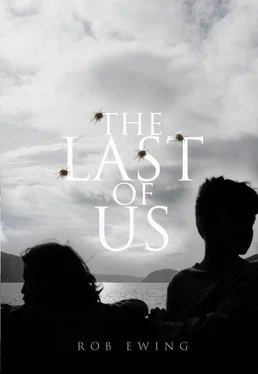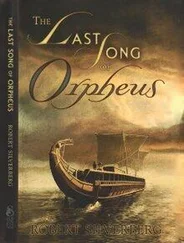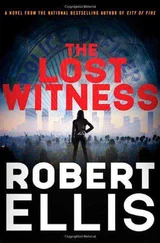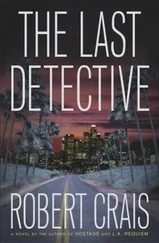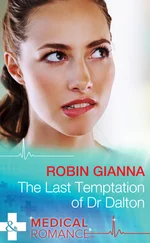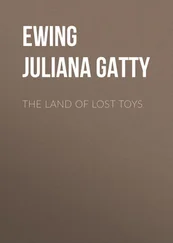With the mirror I count my scars: check they’re the same as before.
Sometimes I count wrong and have to start over.
But even after the checks I start to feel light. Like I’ll blow away on the wind. Like I’m made of nothing. The mirror helps, but the worry is one day it’ll show me going invisible, or thin like a person made of paper.
I try to make more friends with the dogs. If I manage to coax a dog or two in with biscuits then it helps my heart. And when I talk to them they listen patiently, so it gives me the warmth that people once gave.
The dogs aren’t so scary, not when there’s biscuits. Needs must, Mum used to say, about things you did because you had to. Some of them growl, but then I understood Mairi’s trick: you spray them with paint and they learn from then on who’s boss.
The worst thought is if there never was people. It’s like disappearing, just the other way around.
I only have to go to a bad house and smell to know that’s not true. And seeing the dogs, cats, birds helps to prove that other living things exist besides me.
They tried to rub off the curly GI did on the door, but it only went smudged.
The air got cold inside. I’d remembered it looking different: newer, maybe, or bigger. There isn’t much of a smell, just the damp most houses get in the end.
The living room is a bigger mess than before. There’s a new black bit on the carpet. They had a fire, maybe it was an accident? Maybe not. They didn’t tell about it.
In the kitchen I find shrunken jelly cubes. Sometimes shrunken things taste stronger, but mostly they just taste worse. I take them in case it’s the first kind.
In a plastic bag on the floor beside the table – maybe hidden from Calum Ian – I find the library books about sailing and boats that Duncan took.
He was making notes. His writing looks very bad.
I miss other people, seeing the words.
Their bedroom. They took away the sleeping bags. We left them at the ferry waiting room. The clothes they left are in two neat piles on the floor. Calum Ian must’ve washed them: they smell damp, but clean.
In Calum Ian’s drawer I find his notebooks, from before. He tore out the pages about Elizabeth and him being the parents of a family.
Lastly, I go to Duncan’s room, his old room from before, to lay his fiddle on the bed, with flowers.
‘Knew why you were scared of mirrors,’ I say. ‘It was when they checked us, right? Checked we were alive, Elizabeth told me. So I’ll tell you right now: I don’t blame you for being frightened. I got bad dreams about it, too.’
Duncan keeps his own opinion.
‘You were becoming my friend. We were getting on with each other. That’s all I want to say for now.’
I scatter the last of the flowers on his fiddle.
‘Why did I come here? Would you even answer? Would that be all right?’
Duncan doesn’t say.
But I get the idea why: looking out from the window.
I pull Duncan’s dusty curtains right open. Then I turn the handle, open it right up.
In the garden is their plan.
The plan they were busy at, every day. The plastic bottles they kept. The petrol they sucked and collected in the plastic bottles.
The fire they were going to make.
I get less and less strong for remembering. It’s like a talent you took for granted until it got too late. When did I get up today? Don’t know. What was my dinner last night? Forgot. Which dog did I pat last? Can’t remember. What day is it? Who knows? My clock, my best ever clock, ran out of batteries when I wasn’t paying attention.
Mum’s voice used to have a colour. It was warm and red at the edges. Now it’s only shadow-black. There isn’t even a sound to it.
I watch films to remember other voices. But they don’t sound like real voices, not really. Real voices always take you by surprise. With films you know the words.
I special-covered Mum’s letter. I used cellophane from the big roll in the Co-op to make glass. Then I made a frame out of brown card, which I coloured with glitter.
She said, Be bright in the world . So I will. Only it gets hard when the rest of the world can’t see.
My head gets sore when I forget to drink. There are only two things on the shopping list for today:
1. WASHING LINE
2. MATCHES
Before I do it, I drink the last of the coloured water. Then I read the list of two over and over until I know what it is I’m going to do.
There’s a hoodie crow too lazy to fly.
Their road lost its scorch-marks after it rained. And the grass is beginning to grow back again normal.
Some of the dogs are interested. They cuddle in, which is nearly enough to put me off the plan because it’s a break from loneliness, but I tell them to go away.
I changed Elizabeth’s rule 8. It was the one about matches: how they could hurt very much.
Changed it by turning the ‘Do not’ into ‘OK to’ touch, so it meant that I could go ahead with this.
I remember now how Calum Ian did it at the ferry terminal: that night when he made a torch, to look for Elizabeth and Duncan. Even though they were already ghosts. Even though we knew they’d already died.
His routine was: you make a fuse. Just like in cartoons. Then you dip a washing line in one of the petrol-milk containers. Then lay and lay out, back past the side of their house, out and away to the busy car park.
The dogs are not so interested in the smell of petrol any more.
They keep back, mostly.
Unwind, unwind.
I don’t have a box with a handle to make my explosion. I’ve just got the one match.
But it works—
Daytime. A man stands over me. He holds a mirror up to my mouth, then looks surprised to see me waken.
He holds a mirror over the baby’s mouth.
I notice there are three other blanket-shapes in the room. The man goes around them all with his mirror, coughing, doing the same thing he did with me.
When he leaves, a lady comes in. She takes away two of the blanket-shapes, then the baby.
She leaves more biscuits and juice, even though we didn’t eat much of the earlier stuff.
Use all my strength to sit up. Thought it was night, but it’s not: somebody just covered the windows.
I make a peephole. Window looking out on the school. Lorries keep coming. I see the ambulance flashing.
See the doctors, then just one doctor.
Nights and days come like a light switch going on and off. Then I wake up, to a smell.
A smell like the taste you get biting your finger: but all around me, in the air.
Another kid has appeared beside me, lying on a camp bed. Eyes puffed up so there isn’t any white or colour to see. Red bumps so his skin looks like pebbles. He stays for a while, but then goes off somewhere else.
I never see the faces of the adults, just their shoes.
Feet with blue shoe-covers on. The covers torn through. Spotted with black, red.
I want to see their faces, but they’re always way up in the sky, too far away.
No adult has come for two days. But someone beside me is singing – Huis, huis air an each. The words come cracked, then loud, then cracked.
When I wake up proper it’s a surprise to find that the singing voice is mine: was mine all along.
Dark. Then light.
Somebody calling my name. It’s a girl’s voice, maybe even older than me.
I recognise her from the school. She’s Elizabeth, the girl from Bristol who came to live on our island.
Her arm stretched out to me.
‘Don’t be scared,’ she says. ‘Come out from there. I’ve got some water. Come out.’
For now I’m too scared to come out: because that’s when my new life has to start.
Читать дальше
Конец ознакомительного отрывка
Купить книгу
